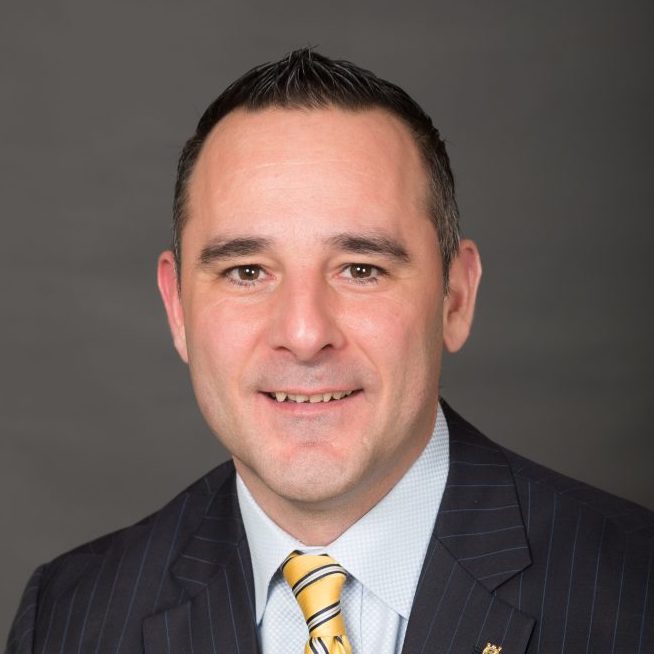
Q&A: Keith Melo, manager of security & life safety, CF Fairview Mall
Alanna Fairey
COVID-19 Updates Features Retail Cadillac Fairview Mall george brown collegeKeith Melo, manager of security and life safety at CF Fairview Mall in Toronto, recently sat down to talk to Canadian Security about the mall's pandemic plan and how they prepared for reopening.
 Keith Melo, Cadillac Fairview
Keith Melo, Cadillac Fairview Keith Melo, manager of security and life safety at CF Fairview Mall in Toronto, recently sat down to talk to Canadian Security about the mall’s pandemic plan and how they prepared for reopening. Watch an “On the Clock” video interview with Melo here.
This conversation has been edited for clarity and concision.
Canadian Security: What precautions did Fairview Mall take prior to the reopening?
KM: Protecting our employees, visitors, clients was really what was driving the plan. We adopted best practices, and we looked at our other properties in other provinces that were definitely opening up before us and looking at what went well but did not go so well. In emergency management, we understand the foundation of emergency management is HIRA, which stands for Hazard Identification Risk Assessment. What that allows us to do was we looked at what were some of the potential hazards, what were some of the probability the consequences only to our staff or clients, customers. We really focused on the essence of hierarchy.
We looked at people property environment, information that was being sent out, not only internally, externally, we also looked at cost, and most importantly, our reputation. How are we going to deal with COVID-19? For example, here at the mall, we have six doors. So do we open up all six doors? Or do we try to abide by public health regulations? What we did was we opened up half of the doors and put many physical security measures in place at all these entry points.
After doing a HIRA, we basically incorporated the six pillars of preparedness. When we focused on the emergency response plans that were sent to all parties across the country, we looked at them, tweak them to our environment. Then we added the next two pillars, which are training, exercising with your staff, your third party contractors, which also includes your cleaners, your other departments. Once we finished the training, we went off and did exercises and what we looked at was discussion-based, as well as operational. We also added the other three pillars of preparedness, which is having someone who’s speaking and educating not only our staff, but the public as well.
I also learned that I had to show my staff that we have to incorporate adult learning principles because even though we’re doing all this training, the requirement is changing really quickly and rapidly, that not everyone learns in the same text. We had to collaborate with our clients, our clients were, you know, weren’t sure how to come back. For example, how do we set up stickers? How do we tell our clients? We had to collaborate.
CS: Did Fairview Mall offer any mental health support for staff?
KM: The mental health side of our staff was really important to us. We would get daily, if not weekly, emails from our senior executives making sure that we were fine. I remember being put through a program called St. John’s therapy dog program when I was in college where we would bring in our pets to liven up the environment. Similar to that, I brought my dog in to work so that our team could walk around and play with my dog. It definitely helped with mental health.
We also had our staff do online courses on mental health to be more aware. We put signage up with regards to physical distancing, we looked at increased cleaning, hygiene, practicing as well as safe traffic flow, for clients or staff.
CS: What were some of the biggest learning experiences that you took away from working during this pandemic?
KM: One of the takeaways that I’ve learned from this is that, as a emergency manager, you really need to emphasize the importance to your frontline staff — that they need to understand culture. Sociology plays a huge part in emergency management. When you’re looking at understanding culture, understand that people are wanting to come back. People want to go back to their old routine, and that can’t happen, so we need to change the way the world is, as the world has been adopting to lessons learned.
One of the things that I’ve also looked at is our educational ambassadors, making sure that our ambassadors are not enforcers. They’re more about showing empathy and understanding that people have been locked up for frustrated just want to get out and get back to routine. We have ambassadors at the front door educating people with the signage and physical distancing. We’ve mitigated any problems within the mall and we’ve really received a lot of great compliments. Public health stopped by recently and we received great feedback from them and from our customers.
The one thing that that I will really emphasize is planning. Plans cannot be black and white — they have to be very gray, very flexible and very adoptable. That’s a lot of the the learning opportunities that we have seen, and that we’ve shared with other properties as well.
Print this page
Advertisement
- Webinar: How to minimize insider risk within an organization
- Canadians can now download new COVID-19 exposure alert smartphone app
Leave a Reply